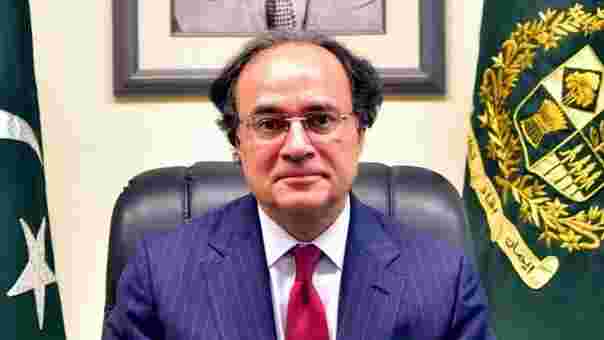Islamabad, February 6, 2025 – Finance Minister Muhammad Aurangzeb on Thursday emphasized the importance of agriculture income tax as a crucial step in broadening Pakistan’s tax base.
During his address, Aurangzeb highlighted that this initiative would contribute significantly to strengthening the country’s macroeconomic stability. He commended provincial governments for passing legislation on agriculture income tax, calling it “a key step towards expanding the tax net.” Aurangzeb’s remarks reflect the government’s continued efforts to address fiscal challenges through structural reforms.
The finance minister stressed that, alongside the agriculture income tax initiative, the government was focusing on a series of structural reforms aimed at enhancing the overall tax system. “More importantly, on the back of this macroeconomic stability, we are executing structural reforms and strengthening the tax net,” he stated. These efforts are seen as part of the broader agenda to ensure the long-term economic health of the country.
Aurangzeb also discussed the government’s austerity measures, which are integral to controlling public expenditures. These measures include right-sizing federal ministries and attached departments and abolishing vacant government positions, aligning with earlier announcements to curtail unnecessary costs. The finance minister’s comments reflect a commitment to fiscal responsibility, an essential factor in improving Pakistan’s economic situation.
The finance minister also addressed the growing need to combat climate change, underlining the importance of swift and actionable policies. Speaking at the international climate change conference titled “Breathe Pakistan,” Aurangzeb stated, “There is no dearth of policy prescriptions; it is all about how and who.” He further emphasized that Pakistan, one of the world’s most vulnerable countries to climate change, needed to move beyond policy discussions and take concrete actions to address these challenges.
Aurangzeb noted that the key issue was not just creating policies but ensuring their effective implementation. He mentioned the National Adaptation Plan (NAP) and the National Climate Finance Strategy (NCFS), launched at the COP29 in Baku in November 2024. These frameworks aim to scale up climate-related investments, attract international finance, and strengthen domestic financial systems to enhance Pakistan’s resilience to climate change.
The finance minister also recognized the role of the Vulnerable Twenty (V20) group, which is working on a comprehensive Climate Prosperity plan set to be unveiled in April. Aurangzeb mentioned that the State Bank of Pakistan (SBP) would play a significant role in issuing guidelines for a green economy framework, focusing on structuring, monitoring, and financing green initiatives.
On the macroeconomic front, Aurangzeb highlighted that Pakistan had made notable progress over the last 12 to 14 months, including a significant reduction in inflation, which fell to 2.4% in January 2025. This progress, combined with the government’s ongoing fiscal reforms, signals a positive shift in Pakistan’s economic trajectory under Aurangzeb’s leadership.
